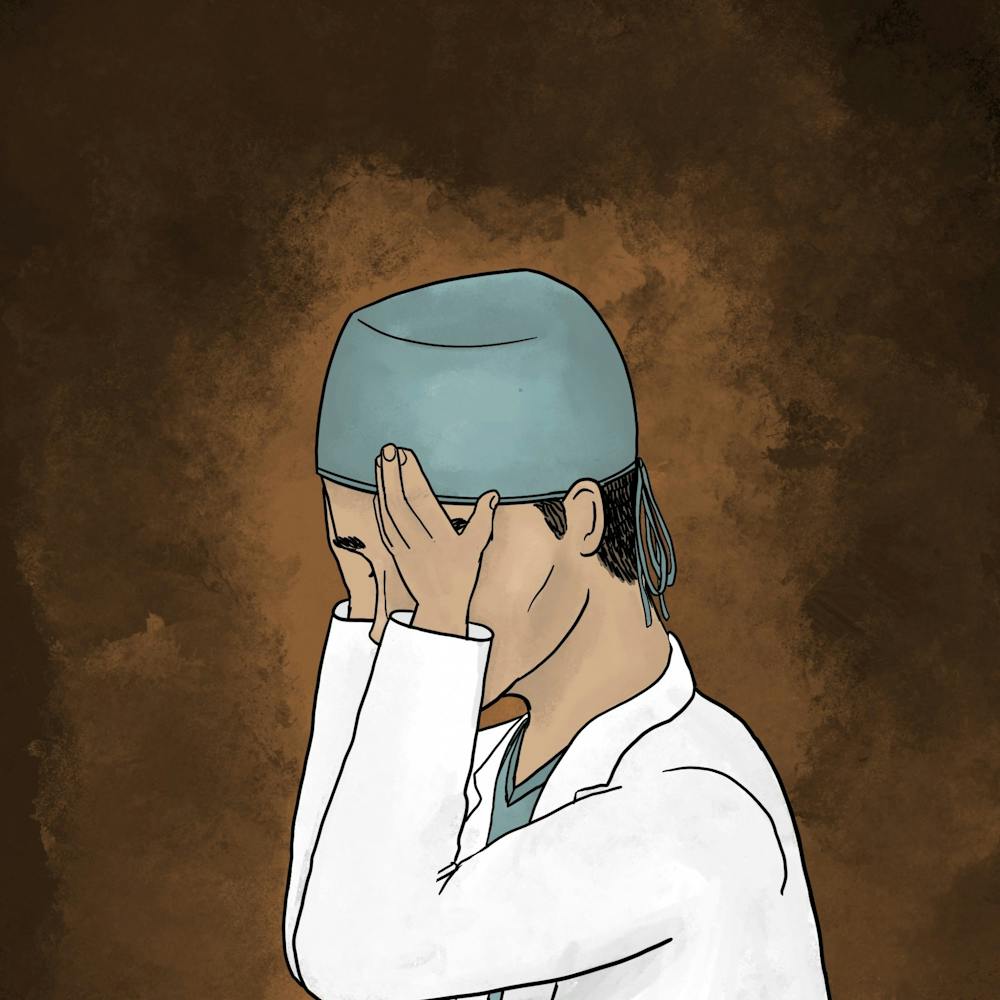The University has received a $2.14 million federal grant to support exhausted healthcare workers and first responders in the greater Charlottesville area through the American Rescue Plan and the Lorna Breen Act.
This grant was awarded to the University through the U.S. Health Research and Services Administration — a federal agency that provides grant funding benefitting public health organizations — as part of a larger initiative to help strengthen healthcare in the country’s underserved and underrepresented areas. It will expand the University’s Wisdom and Wellbeing Program, which uses a peer support model to provide social support for high stress health workers.
Because of this grant, many members of University’s health team will have access to resources and training that they may not otherwise have the opportunity to utilize. These resources and training can help support workers and ward against the burnout that many under-supported healthcare providers have experienced throughout the COVID-19 pandemic.
Burnout is a commonly used word to describe the effects of working in a high-stress environment with stress-related challenges. For healthcare workers, burnout is part of a much larger concept of stress injury, which encompasses four main categories — trauma, loss, moral distress and fatigue. Stress injury can occur in any workplace or casual setting and can result in a cyclic feeling of burnout.
The cycle of stress injury leading to burnout is usually reduced after a relaxing vacation or weekend break. However, this break is only temporary as the stressors in the workplace are often constant and unchanged, which results in a cycle of stress injury, to burnout, to relief which then repeats.
First-year College student Nikitha Yemisetty, who is on the pre-med track, volunteered in hospitals in Northern Virginia before the pandemic. Yemisetty’s interest in medicine and personal experience with healthcare worker fatigue is at the forefront of her mind. The high emotional and physical stress she has witnessed in her time volunteering was a hidden layer to the healthcare industry that she believes not many people are aware of.
“Healthcare workers are overworked and undervalued,” Yemisetty said in an email statement to The Cavalier Daily. “And the trauma that they face is often looked over by society.”
The personal toll of jobs in the healthcare and first responding industries is profound. There are numerous stressors in the everyday functions of the job, and the pandemic has exacerbated them.
To address this issue, Nursing Prof. Richard Westphal and Medicine Prof. Margaret Plews-Ogan founded the Wisdom and Wellbeing Peer Support Training Program at the University.
The WWP is the mainstay of the operation that will be funded through the federal grant to continue its work of taking the key skills of first responder and healthcare workers and using them to help mitigate stressors.
“I have been doing this work for 30 years,” Westphal said. “And it's been in the last 24 months that the world has discovered that [healthcare worker burnout] is a thing.”
The WWP works by taking the support skills that healthcare workers and first responders are trained in providing, and transitioning them into a community mindset. This allows healthcare workers and first responders to help guide each other through the stressors in their personal and professional lives. The increased support from qualified personnel will create a buffer against burnout.
“We're going to be using the $2.1 million to train broadly across the entire health system — [the medical] school, nursing school, and healthcare workers in the five county area — how to use wisdom and resilience practices to support each other,” Westphal said.
One of the fundamental issues that WWP has identified and is trying to combat is the tendency of first responders and healthcare workers to prioritize helping others rather than themselves. This results in inadequate emotional coping mechanisms and resources to deal with the stressors in their own lives. This is particularly because jobs in healthcare and first response are particularly taxing both physically and emotionally.
“One good thing about [the pandemic] is that it brought absolutely front and center the stressors that the healthcare workforce was already beginning to groan under … so it actually could be dealt with,” Plews-Ogan said.
The scope of the WWP, enabled by this federal grant, will now include Charlottesville City, The University of Virginia Medical Centers and smaller clinics and centers in Albemarle, Fluvanna, Greene, Louisa and Nelson counties.
Through the grant, the training program will now include the more populated Charlottesville area and the more rural and underserved areas in farther out counties to expand the peer-support model to these communities.
“This grant is going to allow us to increase the scope [of this training] and make [it] accessible to individuals that we just didn't have the resources to reach out to before,” Westphal said.







